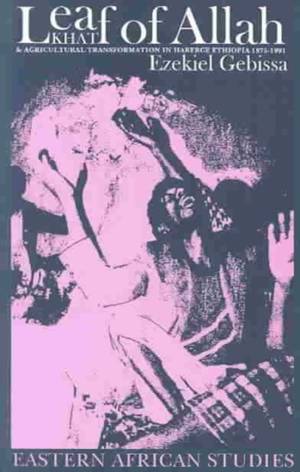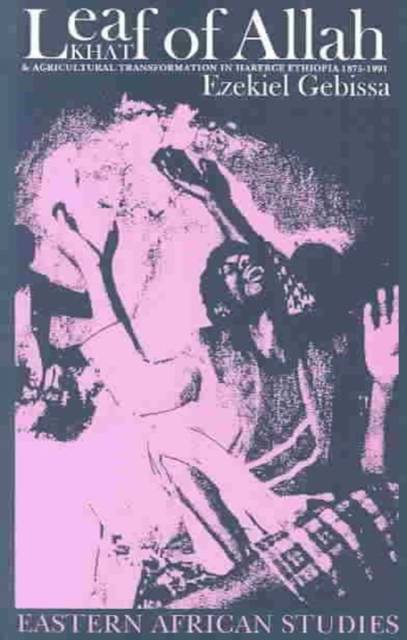
- Retrait gratuit dans votre magasin Club
- 7.000.000 titres dans notre catalogue
- Payer en toute sécurité
- Toujours un magasin près de chez vous
- Retrait gratuit dans votre magasin Club
- 7.000.0000 titres dans notre catalogue
- Payer en toute sécurité
- Toujours un magasin près de chez vous
Description
Khat is a quasi-legal psychoactive shrub, produced and marketed in the province of Harerge, Ethiopia, and widely consumed throughout Northeast Africa. In the late nineteenth century the main cash crop of Harerge was coffee. Leaf of Allah examines why farming families shifted from cultivating coffee and food crops to growing khat.
Demographic, market, and political factors facilitated the emergence of khat as Harerge's leading agricultural commodity. This development increased the scale of unofficial cross-border trade in consumer goods. This study explores the consequences of the new cash crop for the regional economy as a whole, for farmer-state relations, for the nature and balance of local social relations, as well as for Harerge's physical, socioeconomic, and political landscapes.
Spécifications
Parties prenantes
- Auteur(s) :
- Editeur:
Contenu
- Nombre de pages :
- 210
- Langue:
- Anglais
- Collection :
Caractéristiques
- EAN:
- 9780821415603
- Date de parution :
- 29-03-04
- Format:
- Livre broché
- Format numérique:
- Trade paperback (VS)
- Dimensions :
- 139 mm x 216 mm
- Poids :
- 281 g

Les avis
Nous publions uniquement les avis qui respectent les conditions requises. Consultez nos conditions pour les avis.






